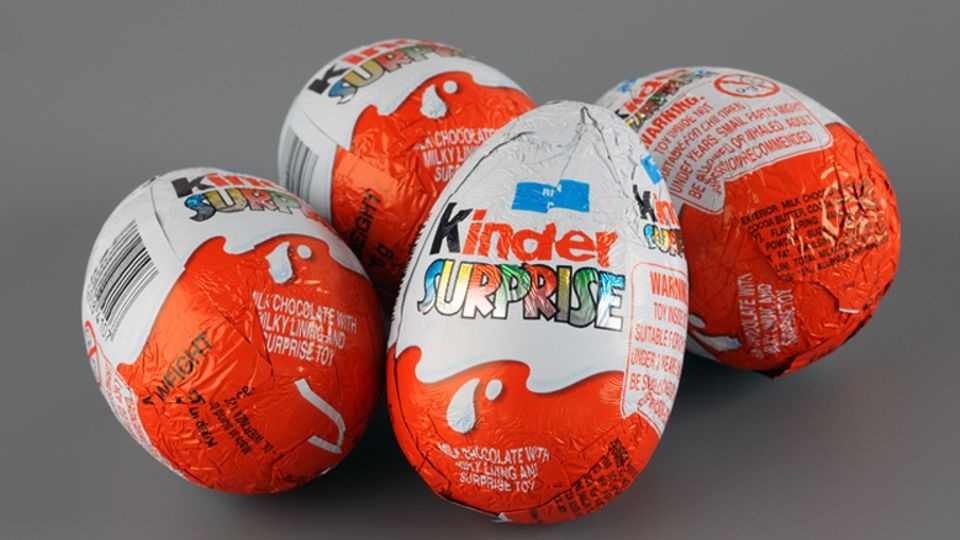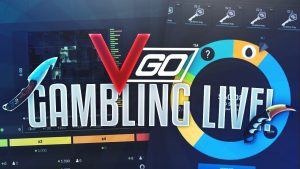
What About VGO?: The Ongoing Debate Around Loot Boxes and Virtual Item Gambling
Discussions about the potential for loot boxes to be considered as a form of gambling have maintained a consistent presence over the last few years, entering the mainstream primarily as a result of EA’s launch of Battlefront 2 in late 2017[7]. Since then there have been a number of regulatory bodies which have investigated, or are investigating, the issue[9]: from Belgium to Australia, and from the UK to the US. Somewhat unsurprisingly the results have been mixed, with a range of views being expressed: Belgium has banned loot boxes which are available for purchase with real-world currencies[4]; The Netherlands have banned loot boxes whose contents, or “prizes”, can be exchanged for real-world currency[10]; others, such as the UK and Australia, have ruled that as the prizes themselves cannot be considered as being “money” or “money’s worth” they are not gambling[6,2].

Kinder Surprise: Stock Image
Even more unsurprising is the position put forward by the games industry, with the ESA stating that rewards obtained from loot boxes have no real-world value, are entirely optional, and that they only enhance the game-playing experience for those who choose to purchase them[8]. Recently, representatives of the publisher EA appeared in front of a UK parliamentary committee looking into the potential effects of loot boxes and associated mechanics. They made the contentious claim that loot boxes do not even exist, that they simply employ “surprise mechanics” in their games. These mechanics are directly equivalent to the purchasing of Kinder Eggs, are actually “quite ethical”, and are simply there because people enjoy them[3]. It remains an issue of vital importance that the debate is founded upon research-based evidence, and that the terms of the debate are not set by parties with a vested financial interest[5].
While there are a number of issues that could be explored in relation to these interpretations, there is a recent development which highlights the flaws in many of these arguments: VGO skins. The fact that loot boxes and, to a lesser extent skins, are catch-all terms which incorporate such a diverse range of items, even within the same game, has muddied the waters of the debate. It is perhaps to be expected that the presence of VGO skins has largely gone unnoticed outside the gaming community.

VGO Case 3 Legendary skin — designed by community member Clegfx, image from: “The VGO Manifesto”.
VGO skins were developed by the online skins trading website OPSkins as a direct consequence of Valve’s 7-day trading ban, implemented in early 2018. In the official press release which accompanied the launch, VGO skins were presented as a means of replicating the online trading economy and “experience” afforded by those of such games as Valve’s game Counter Strike: Global Offensive (CS:GO)[12]. VGO Skins are obtained from loot boxes, purchased from the online site, and can be exchanged via an online marketplace in exactly the same way as CS:GO skins. Furthermore, as a result of the fact that these new skins employed blockchain technology, owners can use them in any game which supports the technology. Essentially, it meant that users would be able to create a consistent look which they could use across multiple games and platforms. The one caveat was that, at the time of launch, there were no games which supported the use of these skins. Since then there has been a single title, The Forge Arena, in which players can use VGO skins. There is, however, a significant market in which VGO skins are used as a means of accessing online gambling activities in the same way that CS:GO skins[8]. Although no information is available regarding the financial value of these markets, the online visibility of such activities, when compared to the visibility of VGO skins as items with in-game use, suggests that gambling and other “trading” is the driving force behind their use.

Image: ashwins yuvis
It can be argued that, as VGO loot boxes and skins are not derived from a specific game, they should not be included in the debate. However, the opposing view is that they are directly derived from the mechanics and in-game items employed in many games and business models employed in the contemporary industry, from free-to-play to AAA. As such, the fact that they have been developed outside of a specific title actually serves to reinforce the point that they reveal the underlying motivations and potential effects of loot boxes and the in-game items which they provide: VGO skins would not exist were it not for the current state of the gaming industry.
A more thorough and detailed examination of the issue has been provided by Abarbanel and Macey in the following article published in the Gaming Law Review journal: “VGO, NFT, OMG! Commentary on Continued Developments in Skins Wagering”[1]. The article concludes that VGO skins constitute evidence against the industry arguments that rewards from loot boxes can only have value inside games, and that they are simply digital versions of products such as Kinder Eggs. In addition, they also highlight the strong connections between loot boxes, virtual items, and gambling. The article, therefore, is of value both the regulators and legislators, as well as to those in other contexts who wish to consider both the theoretical and practical implications of this ongoing debate.
Keywords:
Loot Box, Skins, VGO Skins, ESA, EA, surprise mechanics, regulation, gaming, gambling
References:
- Abarbanel, B., & Macey, J. (2019). VGO, NFT, OMG! Commentary on Continued Developments in Skins Wagering. Gaming Law Review, 23(1), 23-25. https://www.researchgate.net/publication/330490355_VGO_NFT_OMG_Commentary_on_Continued_Developments_in_Skins_Wagering
- Australian Government. (March, 2019). “Australian Government response to the Senate Environment and Communications References Committee report: Gaming micro-transactions for chance-based items.” Retrieved from: https://www.communications.gov.au/file/47910/download?token=wismZKma
- (June 20th, 2019). “EA games: Loot boxes aren’t gambling, they’re just like a Kinder Egg.” Retrieved from: https://www.bbc.com/news/newsbeat-48701962
- Gerken, T. (April 26th, 2018). “Video game loot boxes declared illegal under Belgium gambling laws.” Retrieved from: https://www.bbc.com/news/technology-43906306
- King, D., Melzer, A., & Gaming Industry Response Consortium. (2018). Comment on the global gaming industry’s statement on ICD-11 gaming disorder: A corporate strategy to disregard harm and deflect social responsibility?. Addiction. https://www.researchgate.net/profile/Daniel_King6/publication/326489240_Comment_on_the_global_gaming_industry’s_statement_on_ICD-11_gaming_disorder_A_corporate_strategy_to_disregard_harm_and_deflect_social_responsibility/links/5b6933f5a6fdcc87df6d6511/Comment-on-the-global-gaming-industrys-statement-on-ICD-11-gaming-disorder-A-corporate-strategy-to-disregard-harm-and-deflect-social-responsibility.pdf
- Kleinman, Z. (July 22nd, 2019). “Fifa packs and loot boxes ‘not gambling’ in UK.” Retrieved from: https://www.bbc.com/news/technology-49074003
- Macey, J. (December 10th, 2017). “THE CONVERGENCE OF GAMING AND GAMBLING?”. Retrieved from: https://webpages.tuni.fi/gamification/2017/12/10/the-convergence-of-gaming-and-gambling/
- Macey, J., & Hamari, J. (2018). Investigating relationships between video gaming, spectating esports, and gambling. Computers in Human Behavior, 80, 344-353. https://www.researchgate.net/profile/Joseph_Macey/publication/321192069_Investigating_Relationships_Between_Video_Gaming_Spectating_Esports_and_Gambling/links/5a2e56fd45851552ae7f1b63/Investigating-Relationships-Between-Video-Gaming-Spectating-Esports-and-Gambling.pdf
- Macey, J., & Hamari, J. (2019). eSports, skins and loot boxes: Participants, practices and problematic behaviour associated with emergent forms of gambling. new media & society, 21(1), 20-41. https://journals.sagepub.com/doi/pdf/10.1177/1461444818786216?casa_token=R6-P-XR4BngAAAAA:9hHwrIcwh2b5xORHTLu9_HOASgUweg-d8B2EOgaq9dRB9JglPFWkxXGDb2fytgWtL7Byhv-JnPu6wl0
- The Netherlands Gaming Authority, 2018. “A study by the Netherlands Gaming Authority has shown: Certain loot boxes contravene gaming laws.” Retrieved from: https://kansspelautoriteit.nl/english/loot-boxes/
- O’Connor, A. (November 29th, 2018). “ESA defend loot boxes again, while IGDA call for industry self-regulation.” Retrieved from: https://www.rockpapershotgun.com/2018/11/29/esa-and-igda-respond-to-ftc-loot-box-investigation/
- J. Oxendine. (June 20th, 2018). “VGO Items are now on OPSkins Marketplace!” Retrieved from: https://blog.opskins.com/vgo-items-are-now-on-opskins-marketplace/




Sorry, the comment form is closed at this time.